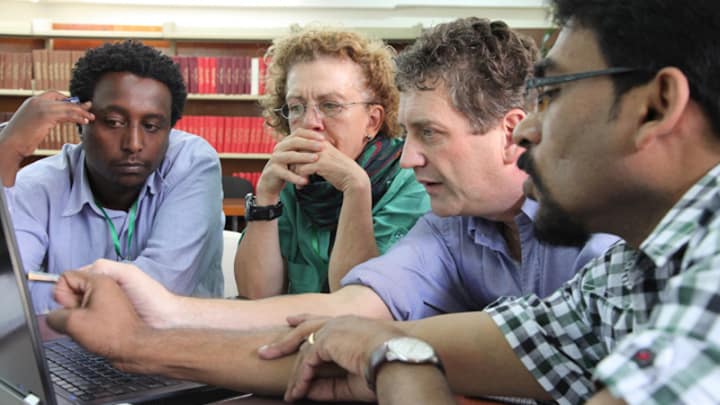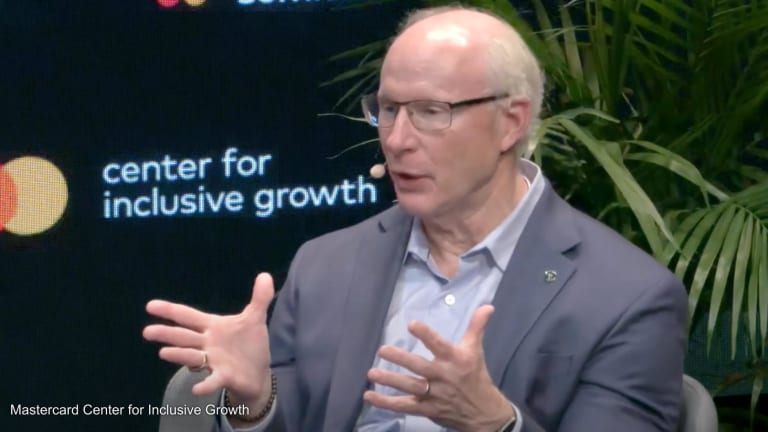
As human development practitioners, we have been talking a lot recently about how a changing world is demanding new approaches to development in the way we finance, implement our projects and measure the results of our work. But what has been missing is a discussion about how to change the way we think about the world and mental models we use as we try to make our world a better place. While we all agree that the world has changed, our mental models lag behind, and we desperately need a mental model upgrade.
Otto Scharmer, an economist, organization theorist and keynote speaker at the upcoming Challenge Conference in Washington, D.C., wrote in “Leading from the Emerging Future:” “The success of our actions as change-makers does not depend on what we do or how we do it, but on the inner place from which we operate.” In other words, our awareness provides the underlying ground out of which our thinking and doing emerge.
Not so long ago, the world seemed simple and predictable. Linear logic models made our work in human development appear straightforward and controllable. We believed that we only had to find, learn and teach others how to manipulate the right societal levers to drive change and make things function better. Our management guides assured us that the right actions would naturally lead to the right results. We talked about mechanisms for social change as if societies and groups were giant machines.
But that was yesterday. Today, we live in the so-called systems age, when the world is understood to be defined by relationships, networks, interdependencies and emergent properties, rather than by predictable, machinelike mechanisms. The effects of our actions are often uncertain, indirect, mediated and delayed. It is difficult to anticipate what will happen when one intervenes in a system, and at times, the most we can say is that a change at one point will have wide-ranging effects at multiple levels of the whole.
We have learned from system dynamics that intended actions do not necessarily produce intended results, as our management guides once promised. Yet we continue to experience and act on the world as if that were not the case, and commonly we reduce the complexity of our interconnected realities to simple, linear models that better fit our need to measure outcomes rather than to transform situations. We are learning how our mental constructs constrain our “space of possibility.”
Gregory Bateson, the late anthropologist, once said that most of today’s major development problems can be attributed to the difference between the way reality works and the way human beings think about it. This disconnect between mind and reality actually reproduces and often exacerbates the very problems we are trying to solve, as evidenced in our worsening ecological crisis. So, how can we bring our thoughts, actions and conscious being more in line with how the world really works?
Perhaps the answer lies in deepening our engagement with complexity rather than trying to avoid it or overly simplify it. We must learn to decondition our habitual use of projecting outmoded models on problems that are not deterministic. We must think using circular forms of causation rather than just thinking in straight lines. We must learn to engage in real dialogue — as opposed to mere discussion — that will allow for new insights to emerge about patterns that connect. We must let go of our tendencies to stand outside the system we are trying to change and instead engage as a part of the system, holding a deeper understanding of how our modes of thinking are part of the problems we are trying to solve. Once these techniques are better appreciated and formulated, they will translate into new, practical, yet holistic ways of being and working in the world.
An inkling of what is possible can be seen in the application of social technologies, such as Future Search, the AIC (appreciation, influence and control) model and the SCALE+ (systemwide collaborative action for livelihoods and environment) model, which use holistic techniques to understand complex problems and to chart new ways to address them. Those who have participated in these systemwide change efforts often remark how the wisdom of the system brings forth a new perspective at a critical moment that is helpful to resolve a given conflict or dilemma and chart a new course of action, often leading to transformative results.
Holistic techniques that open up the collective space of possibility can help us deepen our engagement with systems and systemwide change. And, perhaps a few years from now, our revised management guides will say: Right awareness leads to right systemic engagement, which leads to right action and right results in both consciousness and form. That is what development is all about.
Join the Devex community and access more in-depth analysis, breaking news and business advice — and a host of other services — on international development, humanitarian aid and global health.




